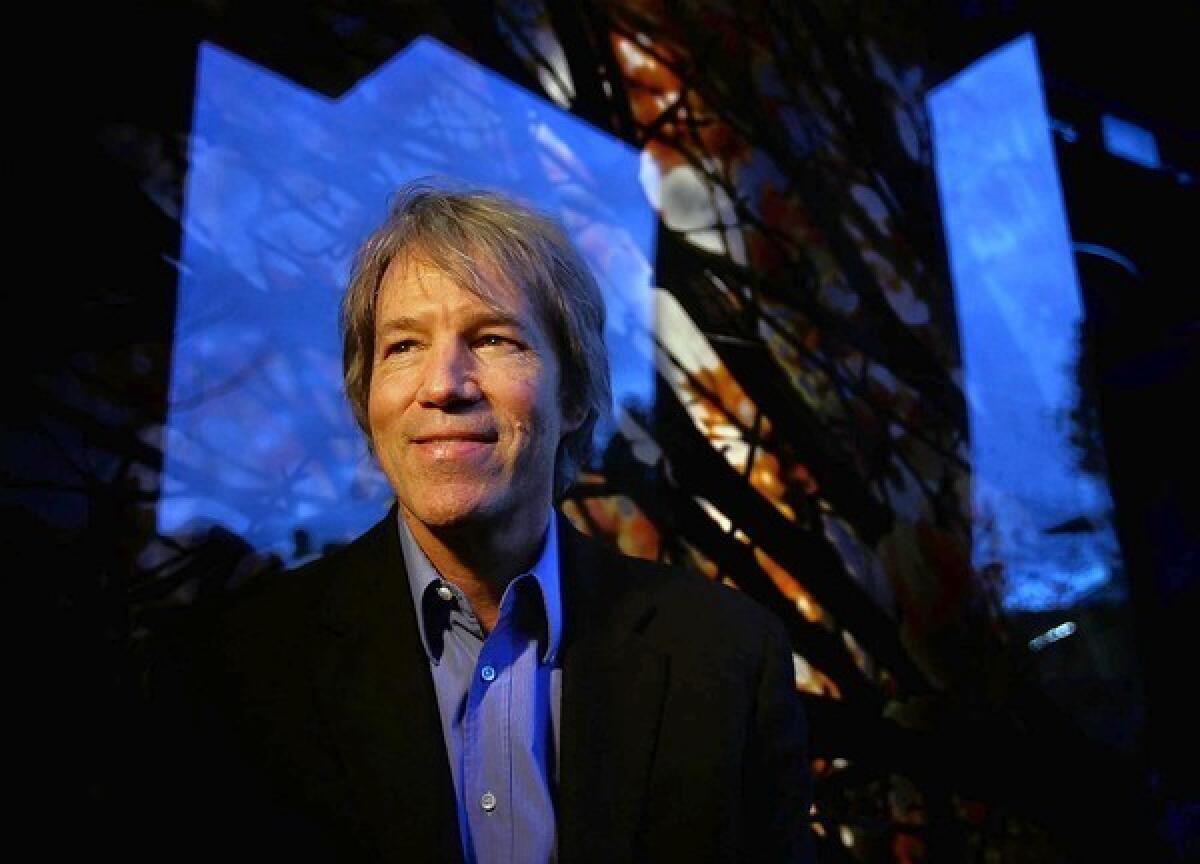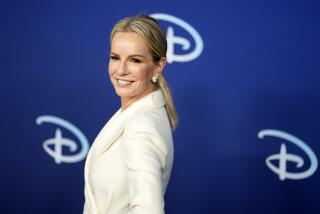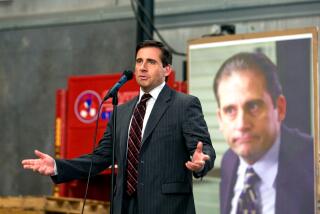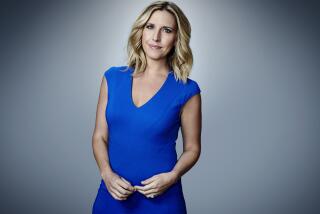For David E. Kelley, ‘Monday Mornings’ is a fresh start

Hot seats don’t come much hotter than the one at center stage of TNT’s new medical series “Monday Mornings.”
Anchoring the drama are the morbidity and mortality forums in which doctors at fictional Chelsea General Hospital face-off against their colleagues as they justify their treatment of patients. The behind-closed-doors sessions are frequently brutal, as trauma surgeons, specialists and physicians are subjected to often-withering criticisms from their peers as they defend life-and-death decisions made under extreme pressure.
Although the sessions on the show are based on real-life conferences that take place in teaching hospitals, executive producer David E. Kelley has never witnessed one — to his chagrin.
VIDEO: Upcoming TV shows timeline
“I have not had the joy of being the fly on that wall,” Kelley, the key force behind the series, said with a trace of creative longing. “There are no backstage passes to those events. They’re privileged — they have to have that unfettered candor in order to improve their product.”
Exploring how it feels to be under fire professionally may appear to be alien territory for Kelley, long hailed as one of TV’s elite creators. His distinctive series — including “L.A. Law,” “Picket Fences,” “Ally McBeal,” “Chicago Hope,” “The Practice” and “Boston Legal” — have been fueled by his formula of combining ethical and moral dilemmas, eccentric characters and off-the-wall humor.
Kelley penned the vast majority of episodes for those shows and remains the only producer in history to score Emmys in the same year for both outstanding comedy and drama series (in 1998 for “Ally McBeal” and “The Practice”).
TIMELINE: Emmy winners through the years
Despite the accolades, “Monday Mornings,” which premieres Monday, finds Kelley at a bit of a crossroads following an uncharacteristically bumpy period.
After years of developing projects for all four major networks, Kelley has traded the blaring neon of the broadcast TV arena for the lower-wattage TNT on basic cable. He is still smarting over the fate of his last show, “Harry’s Law,” NBC’s legal drama starring Oscar winner Kathy Bates as a crusty senior citizen attorney that was unceremoniously yanked in its second season because the bulk of the show’s fans fell on the senior side of the valued demographic of teens and young adults. And his highly touted project revolving around DC Comics’ heroine Wonder Woman never got past the pilot.
“Monday Mornings,” with an ensemble cast that includes Alfred Molina and Ving Rhames, is almost a throwback to an earlier era: The situations are serious but it lacks the flawed antihero and the dark, bleak tone dominating the TV arena in shows such as “Homeland,” “Breaking Bad,” “Mad Men,” “Sons of Anarchy” and “The Walking Dead.”
But if Kelley was anxious about how “Monday Mornings” would be received, it was not evident during a recent interview. With the exception of gray hair, he does not appear to have aged much since the mid-1990s when he was churning out scripts — by hand on legal pads — for “Ally McBeal” and “The Practice.”
Displaying his characteristic self-deprecation, he seemed energized by his work on the new show (and he still writes his scripts by hand, although he confesses that sometimes his fingers cramp).
“Things are going really, really well,” Kelley said. “This show seems so creatively strong. I hope we have a viewing constituency that allows us to keep doing this for a while.”
VIDEO: Upcoming TV shows timeline
The series, based on a novel by neurosurgeon and CNN chief medical correspondent Sanjay Gupta, marks the first time Kelley has developed a series that wasn’t his original idea. When first approached about taking it on, he was skeptical, feeling it might be too similar to “Chicago Hope.”
“It sounded like an interesting series, but it was an arena I had visited before and was not inclined to take on right away,” he said. “Then I read the book and it was totally different from anything I had done or seen. It was a book that demanded to be a TV show.”
The most intriguing aspect for Kelley were the morbidity and mortality meetings, which Gupta, who is an executive producer and writer on the series, has witnessed.
“It was really quite fascinating,” Kelley said. “It’s very much about making each other better doctors, but the way they do it is no holds barred. I was also fascinated by how personal relationships could survive in such an antagonistic arena — and they do survive. It’s an adversarial process in the room, and yet these people walk out closer for having gone through it.”
More importantly, the show allowed the producer to pursue his interest in exploring the frequently hazy lines separating right and wrong, black and white. “Historically, my pieces have gravitated toward the moral and ethical debates that lie within stories. Our characters are forced to make moral and value judgments.”
Being in business with Kelley is a major coup for TNT, whose drama slate has included “The Closer” and the ongoing “Falling Skies.” Said TNT President Michael Wright: “We’ve been chasing David for years. We always thought his unique brand of combining great drama with ironic humor was a perfect fit for us.”
For Kelley, working on “Monday Mornings” has been the perfect medicine for the professional scars he suffered from his “Harry’s Law” experience with NBC.
“It was a tight-knit group, those of us who worked on the show, and we’re still a little bit in mourning about it,” he said. “To be honest, we’re still a little befuddled. We had 8 to 9 million viewers. They were outside the coveted demographic, but that many people would seemingly be nothing to dismiss. The overall experience was a bit humbling.”
In his view, the influx of edgier, darker dramatic series is a mixed blessing.
“In many respects, TV dramas have gotten better,” Kelley said. “What’s changed is there’s a lot more good stuff and bad stuff. There’s quite a few shows I couldn’t or wouldn’t do. It doesn’t coincide with my skill set. That’s not a judgment call on my part. I probably couldn’t get a job as a staff writer on ‘Homeland’ — they’re so good at what they do.
“Bleakness is not a well I could go to on a consistent basis. When I do a TV show, those characters come home with me on a regular basis. They’re in my life. I don’t think I could live in that world.”
But on the plus side, the increase in choices on cable and network gives dramas a better chance to succeed.
“You don’t have to have 20 million viewers to survive,” Kelley explained. “You can get 8 or 9 million and be a hit.”
With a mischievous smile, he added, “That is, unless you’re a little old lady on a network that wants young people.”
PHOTOS, VIDEOS & MORE:
GRAPHIC: Faces to watch in 2013
VIDEO: Winter TV preview
PHOTOS: Best TV of 2012
More to Read
The complete guide to home viewing
Get Screen Gab for everything about the TV shows and streaming movies everyone’s talking about.
You may occasionally receive promotional content from the Los Angeles Times.







